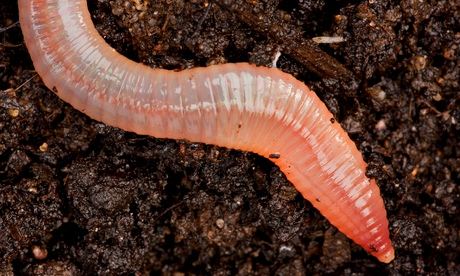Much talk has been on the Anthropocene. In my opinion, we're already in the midst of this geological epoch. This sixth mass extinction is gaining ground, and unraveling before our very own eyes. Species are going extinct about 1000 times faster than they would be without humans' presence (Pimm et al., 2014).
Which species do we most need to save? While pandas and polar bears are adorable, less appealing are the worms that are so fundamentally integral as a contributory to ecosystem services, that protecting these species can directly or indirectly influence the perpetuation of many other species as well.
 | |||
| BEFORE YOU START SQUIRMING, THINK OF HOW IMPORTANT WORMS ARE. PHOTO: ALAMY |
Why are worms so important?
As a start, worms eat organic matter and break them up into smaller pieces, allowing fungi and bacteria to further decompose these organic materials and return nutrients back into the soil for plants to utilise. (And I'm sure you know how important plants are as habitats, sources of food, medicine and shelter).
When worms tunnel through soil, it facilitates water absorption and allows oxygen to enter the soil during heavy storms, and retains the water during dry periods. This underground tunneling process opens up passageways called soil pores that create space for air and water. Adequate water spaces allow for good infiltration and percolation of water through soil. Hence, drainage is improved, and waterlogging is minimised. This will reduce the chances of fungal diseases and root rot plaguing farmers' crops. Hence, worms are also farmer's good friends, increasing soil fertility and maximising crop yields in the process.
On a separate note, scientists are also studying the feasibility of mealworm as a source of protein for human consumption! With world population set to increase to 9.6 billion in 2050, food production must increase by 60% (FAO, 2014), and global agricultural systems would have to do so using less land, water and fertiliser. This is arguably impossible to achieve unless alternative food sources are scouted.
 |
| A MEALWORM FEAST. PHOTO: IAN CHANT |
Literature Citied
Food and
Agriculture Organization, International Fund for Agricultural Development, &
World Food Programme. (2014). The State
of Food Insecurity in the World 2014. Strengthening the enabling environment
for food security and nutrition. Rome, FAO.
Pimm, S. L., Jenkins, C. N., Abell, R.,
Brooks, T. M., Gittleman, J. L., Joppa, L. N., ... & Sexton,
J. O. (2014). The biodiversity of species and their rates of
extinction, distribution, and protection. Science, 344(6187),
1246752.
No comments:
Post a Comment